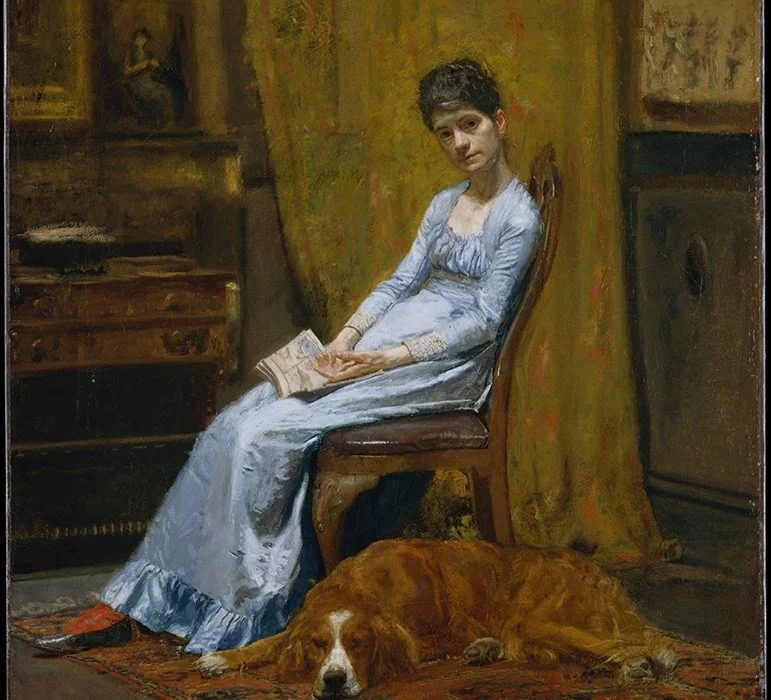Relationships • Mature Love
The Secret to a Good Love Life: The Relationship We Have With Ourselves
We tend to assume that good relationships are fundamentally founded on the values and attributes of the people we get together with. But we might venture that long before there is anyone else on the scene, before we even enter the dating world, what truly determines our chances of a sound romantic future lies elsewhere: in the quality of the relationship we have with ourselves.
What exactly do we mean by this strange term, a relationship with ourselves? Essentially, it refers to the sense we carry of what we deserve, based on who we feel we are.

Some of us grow up with the ability to be instinctively and profoundly kind to ourselves. Without smugness or conceit, we know that we merit good treatment, that we are decent people, that we have things to offer – and that it would not be appropriate for anyone to make us suffer or to humiliate us. In other words, we are on our own side. In the way we view ourselves, we carry the attitude of every sane parent towards the child they love: we believe that we are good enough.
But some of us are not so blessed. For as long as we can remember, we may simply have despised our own being. We have no love for our bodies or our minds; we assume that everyone we encounter would have good reason to think rather ill of us. If we were asked to rate our character out of ten, it would feel intuitively logical to award ourselves a zero or a one. Are we worth knowing? Not really. Are we attractive? Of course not. Are we repugnant? Yes, in a hard-to-pin-down but incontestable way, of course.
For a long time, we may not make much of a connection between this background relationship with ourselves and what goes on in our love lives. The two issues can seem utterly unrelated: one has to do with self-esteem, the other with the sort of people we fall in love with. But under examination, this relationship to self reveals itself as the explanatory factor in almost everything that unfolds romantically. What occurs with our partners from adolescence onward – who we choose or don’t choose, how long things last or don’t last – is, in the end, nothing more nor less than a consequence of, and an extrapolation from, the view we hold of ourselves.
When people with a good relationship with themselves face a prospective lover, they instinctively have one question in mind: whether or not this individual has their interests at heart. Are they going to be kind? Do they know how to be tender? Do they make them feel safe? Are they properly delighted to be in their presence? Without anything arrogant being meant by this, do they understand how lucky they are to be with them? It is this – not some random physical or social attribute – that ends up determining how ‘attractive’ they seem. ‘Sexiness’, in the healthy mind, is merely an offshoot of niceness.
As the union deepens, self-loving people signal that good treatment is the non-negotiable condition of remaining in their company. And, on this basis, good treatment tends to be precisely what they receive – because, in a poignant dynamic, other people generally treat us according to how we unconsciously signal that we deserve to be treated.
For the person who likes themselves, their partner has to be reliable, they have to be polite, they must hold themselves accountable. They can’t take an age replying to messages. They aren’t allowed to lie or flirt with other people. And so, typically, they don’t. At any sign of trouble, the self-loving person will speak up (it’s easy for them to do so when they aren’t ashamed of who they are): Why were you out so late? Is it right to be drinking so much? Couldn’t you have messaged me? There isn’t any hesitation about getting stern when a boundary has been crossed; but nor are there grounds for anger, which only tends to be born out of self-hating panic that one has no alternatives.
How woeful, by contrast, is the fate of the person with a sickly relationship to themselves. They have no memory of being treated well and so have no model of how to protect their interests when these come under threat. They may stamp their feet or scream, but they are powerless. If someone starts to treat them poorly, it feels familiar rather than shocking. If the partner makes excuses, they double down on silently hoping that there can be change with even greater effort. Nastiness is read as sexiness. The more unpredictable and poor the love they receive, the more they trust in its existence. If they get rejected, they spend years longing (or begging) to get back into the very relationship that devastated them.
Anyone can fall in with a scoundrel: the difference between people of low and high self-esteem is how long they choose to remain in their company.
The origins of our relationship with ourselves are – tragically – only an internalisation of the very first relationship we had in childhood. It’s the kind of care we received as infants that creates the model for how we treat ourselves. The chief sign of an unloving childhood is an inability to protect our interests. Those who’ve been neglected once will end up being neglected again – indeed, will end up being magnetically attracted to neglect, which will feel like love; which will feel like home.
For those of us who may now have a dawning sense that not all is well in how we treat ourselves, we might start by asking some momentous yet simple sounding questions: Is it right that I suffer at another’s hands? Should I be pining for someone who doesn’t want to know me? And, correspondingly, should I always be suspicious of someone who is that very unfamiliar thing: nice? Eventually, what should have been obvious from the beginning will at last be absorbed as a native truth: there is no reason for a partner to be anything other than kind.


























